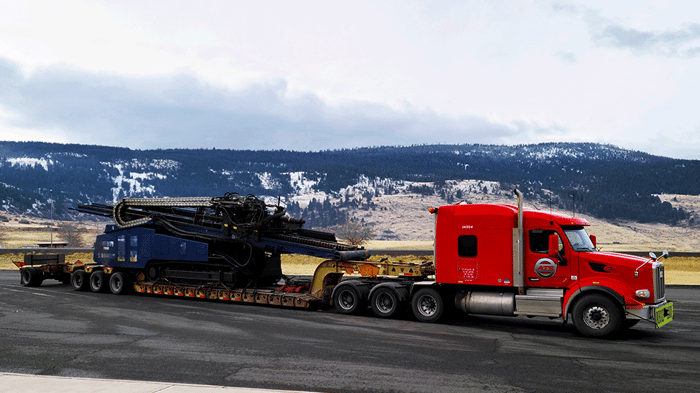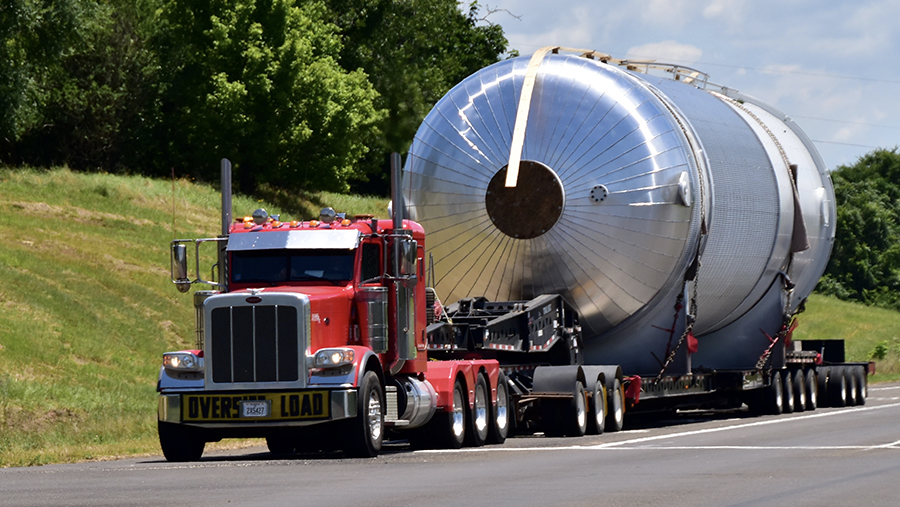How Do Professionals Handle Heavy Hauling Logistics Challenges
Walker Logistics offers expert heavy hauling logistics services, ensuring safe, compliant, and efficient transport of oversized and industrial freight
When it comes to moving oversized machinery, bulky construction equipment, or industrial freight, precision and expertise are essential. Professional teams in heavy hauling logistics understand the unique challenges involved in transporting large, heavy loads and have the skills and resources to handle them effectively. By relying on specialists, companies can minimize risks, ensure safety, and achieve efficient delivery timelines that support their operations.
Understanding the Complexities of Heavy Hauling
Moving heavy freight is not a simple process of loading and transporting goods. It requires meticulous planning, permits, specialized equipment, and adherence to safety regulations. Professionals evaluate factors such as weight limits, height restrictions, road conditions, and delivery deadlines before taking on a hauling job. This preparation ensures that no costly mistakes occur along the way.

The Role of Pre-Planning
Pre-planning is critical in heavy transport operations. Experts map out routes in advance to avoid bridges with weight restrictions, narrow roads, or sharp turns. They also coordinate with local authorities to secure necessary permits for oversized loads, ensuring compliance with transportation laws.
Equipment Selection and Customization
Not all loads can be managed with standard trailers. Heavy hauling often requires the use of lowboy trailers, extendable flatbeds, or multi-axle systems designed to carry extreme weights. Professionals select equipment that suits the cargo’s size and shape, minimizing risks during loading, transit, and unloading.
Safety as the Core of Heavy Hauling
Safety remains the top priority in all aspects of transporting oversized freight. Specialized logistics companies invest in well-maintained vehicles and advanced securing methods to prevent cargo from shifting during transport.
Driver Training and Expertise
Professional drivers undergo rigorous training to manage oversized loads. Their expertise allows them to anticipate road challenges, adjust driving techniques, and handle complex maneuvers, ensuring both the cargo and surrounding traffic remain safe.
Compliance with Regulations
Heavy freight cannot move freely without meeting strict regulations. Professionals are well-versed in federal and state guidelines, including weight distribution, escort vehicle requirements, and restricted travel times. Compliance not only ensures safety but also prevents costly fines and delays.
Overcoming Logistical Barriers
Transporting heavy equipment often involves challenges beyond the vehicle itself. Unexpected weather conditions, traffic congestion, and road closures can disrupt schedules. Professionals anticipate these risks and build contingency plans into the hauling process.
Coordination and Communication: Effective communication between logistics managers, drivers, and clients is key to avoiding disruptions. Professionals keep clients informed throughout the hauling process, ensuring expectations are managed and problems are addressed in real time.
Technology in Logistics Management: Modern heavy hauling services rely on GPS tracking, load monitoring systems, and digital route planning tools. These technologies enhance visibility, reduce risks, and improve efficiency in freight transport operations.
Why Expertise Matters in Heavy Hauling Logistics
Hiring professionals is not just about moving freight, it is about protecting investments. Industrial machinery and construction equipment represent significant financial value, and improper handling can lead to damage or loss.
Reducing Operational Downtime
When companies entrust their hauling needs to experts, they avoid delays that can stall construction projects or industrial operations. Experienced logistics providers understand the urgency of deadlines and work to keep deliveries on schedule.
Tailored Solutions for Complex Needs
Every heavy hauling project is unique. Professionals design customized solutions that account for cargo type, route complexity, and delivery timeline, ensuring a smooth and successful transport process.

Conclusion
Handling oversized and heavy freight requires far more than trucks and trailers. It demands planning, specialized equipment, regulatory knowledge, and trained professionals who understand the complexities of the industry. With expert support in heavy hauling logistics, businesses can move critical equipment safely and efficiently, reducing risks while maintaining productivity. By partnering with logistics specialists, companies not only protect their assets but also gain peace of mind knowing that their freight is in capable hands.
FAQs
What types of cargo require heavy hauling logistics? Cargo such as construction machinery, industrial equipment, wind turbine components, and oversized manufacturing parts often need specialized hauling services.
How do professionals secure heavy loads during transport? They use advanced strapping systems, chains, and load-balancing techniques to ensure cargo remains stable throughout the journey.
Are permits always necessary for heavy hauling? Yes, most oversized or overweight loads require state or federal permits to ensure safe and legal transport.
What role does technology play in heavy hauling logistics? GPS tracking, digital route planning, and load monitoring systems help improve safety, efficiency, and transparency throughout the hauling process.
Why should companies hire professionals instead of handling transport in-house? Professionals bring expertise, compliance knowledge, and specialized equipment that significantly reduce risks, delays, and costs.